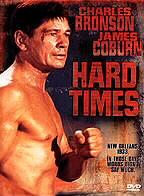
"The AT&T brand reflects what customers are looking for in a provider," SBC CEO Edward Whitacre Jr. said in a statement. "They want the latest technology and services, but they also want reliability, quality and trustworthiness. Only the AT&T brand offers this ideal combination of traits." He also said its merger with AT&T "will enhance competition, help bring new technologies to market faster, and provide real benefits to consumers and businesses."
AT&T, or Ma Bell as it was affectionately known, grew to become the nation's largest and most influential telephone company after getting its start in 1877 by founder Alexander Graham Bell. Southwestern Bell, one of the so-called Baby Bells, was formed out of the AT&T break-up in 1984. Southwestern Bell later became SBC.
qualityg says ... Since 1984 the world and particularly the United States has suffered because of your moronic decision by Judge Harold Greene. Tell me where you can find a company today that has over a million employees with standardization and reliability that compared to AT&T in 1980. A million employees working and paying taxes with a good wage. No other company has ever come close to giving back to the communities in which they were located.
In order for the breakup to even have a small chance of succeeding all of the barriers would have to come down, only a bunch of government idiots would believe that start-up companies would ever be able to compete. The investment in capital for landlines, circuits, marketing and R&D will never be realized. NEVER! This is not hindsight, this was predicted in 1984!
So what did we get? Corruption, mismanagement, greed, mismanagement, layoffs, mismanagement, crap stock prices that never move and more mismanagement. Did I mention mismanagement?
What about the egos of the current CEOs from the old bell system and currently of AT&T. They have turned into leeches and waged a war to be the first to add AT&T CEO to their titles. Dream on fellas,
AT&T is dead, let her RIP - 1877 - 1984.
UPDATED 11/11/05
Like I said above the egos are running rampant.
AT&T CEO dave dorman won't remain after SBC takeover
AT&T CEO David Dorman confirmed expectations Thursday that he won't stay on long after AT&T is acquired by SBC, opting for nearly $20 million in severance pay and consulting fees rather than a subordinate post at the combined company.
"Dave made it clear that he wanted to be considered as Ed's successor, and that's not going to happen according to the SBC board's management succession plan," AT&T spokesman Andrew Backover said. "Dave respects the board's decision, wishes the new AT&T the very best and will work hard to make the transition a smooth one."
The arrogance never stops. Just wait until East meets Southwest next year in management meetings. AT&T egos are used to pushing around their counterparts/peers when a merger acquisitionton takes place. The Texans are going to ride all over them dudes from NY & NJ!
UPDATED 11/20/05
The new AT&T Inc., freshly formed by SBC Communications Inc.'s purchase of its former parent company, on Monday unveiled its new corporate logo: a variation on the familiar blue AT&T globe with the company's name spelled in lowercase letters just below.
 qualityg says ... Like I said this is not AT&T, it's just a company pretending... What is the purpose of the baby letters? The circle looks like one of those fancy white chocolate candy balls. Looks good on the outside until you take a bite and spit it out.
qualityg says ... Like I said this is not AT&T, it's just a company pretending... What is the purpose of the baby letters? The circle looks like one of those fancy white chocolate candy balls. Looks good on the outside until you take a bite and spit it out.
UPDATED 11/22/05
What is going to happen to Golden Boy? My suggestion is put him in front of the Alamo in San Antonio (SBC Headquarters). He also represents a once great icon that got run over by politics and management dictators.
AT&T Kicks Off its Biggest Ever Ad Campaign
AT&T Inc., formed by SBC Communications' purchase of AT&T Corp, is planning the biggest ad campaign in the history of either company in a bid to convince customers to stay as competition heats up from cable television rivals.
The national campaign , which uses the slogan "Your world. Delivered," is expected to run in the hundreds of millions of dollars and is AT&T's first since it was formed last month.
 VS
VS 














